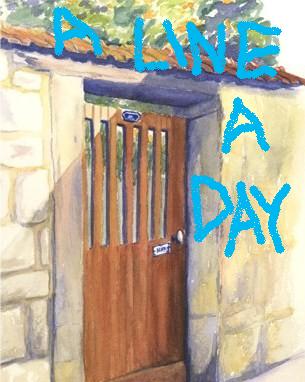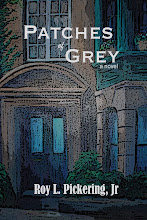Wolf’s Coming - Cute twist at the end, and I'll say no more so not to spoil it for you. Wolf's Coming is like Hitchcock for toddlers who come in with expectations created by The Three Little Pigs, Little Red Riding Hood, and other wolf as villain tales.
Wild Baby - If you have a free spirited child who does not yet comprehend the concept of sitting still, this book will delight.
When I Was Little - Adorable. My daughter loves to reminisce about the 3 years of her life so far, making our connection to this book instantaneous.
Waking Up Wendell - A cleverly crafted book that takes children on a delightful trip down a charming street.
Tummy Girl - A joyous celebration of little girlhood.
This Jazz Man - A masterful introduction to jazz for little ones.
There’s A Cow in the Road - Lindbergh does a wonderful job building up the amusement level as you read along from a smile to a giggle to hearty laughter.
Tell Me Again About the Night I Was Born - What they loved hearing the first time children want to hear again and again and again. And this is a book they will love having read to them again and again. Jamie Lee Curtis has far surpassed her solid acting career with her writing career.
A Sound Like Someone Trying Not to Make a Sound - I'm a big fan of John Irving and loved the idea that he had written a children's book, giving my daughter a chance to become one of his fans as well at quite the young age. She typically makes it very clear which books are among her favorites. Mr. Irving and the very talented illustrator he worked with passed her test even though it is not the typical all ends on the happiest of notes children's book. My wife commented as I read it the first time that it might give our daughter nightmares. I can't say if it did or not, but when asked how her sleep time went the next morning her response was a novel and surprising - "interesting".
Sing-Along Song - So enjoyable to read/sing this book aloud.
The Runaway Pumpkin - I have just as much if not more fun reading the rumbling, tumbling prose of this book to my daughter as she does having it read to her.
The Quilt Story - A comforting, endearing read about a comforting, durable possession.
The Perfect Nest - Those like myself who enjoy coming up with a variety of different voices for the characters in read-aloud books will appreciate the material Catherine Friend provides here. Your rapt listening audience will be equally pleased.
Over the Moon - Katz' prose for children always soars over the moon and straight into the heart. Her "flip the flap" books were amongst the earliest titles we read to our daughter as an infant, and when she grew older this lovely tale awaited us.
Nighty Night, Sleep Sleeps - My daughter is a talented sleep avoider who gets a major kick out of books that feature other little ones who fight fight fight against the dying of the light. This book is the latest in that genre to tickle her funny bone, and any book that brings her such obvious delight gets major kudos from me.
My Lucky Day - Sure to be adored by all little tricksters in training.
A Mother for Choco - This book about the search for HOME & FAMILY is sweeter than syrup poured on top of honey and sugar.
Llama Llama Mad at Mama - Those who have tantrum throwing children and the kids doing the tantrum throwing will all find this book to be utterly adorable.
Little Bunny’s Sleepless Night - A natural choice for bedtime reading that is sure to become an instant favorite.
Ladybug Girl - A smile inducing book about the power of imagination and ability to entertain and define yourself that is so critical for children to develop.
Jenny Found a Penny - My daughter insisted on ownership of her very own piggy bank after this delightful book was read to her.
Jazzy Miz Mozetta - Tough to refrain from bopping your head along with the rhythm of this gem of a read.
I Like Myself! - A charming early tutorial in rhyme on the topic of self esteem.
I Feel a Foot - A puzzle, a mystery, and a lushly illustrated tale all wrapped into one. Everyone's perceptions are colored by their own personal perspective, which is an interesting concept for any book to cover, and a delightfully surprising one to be taught by a children's book. Apparently this story is a retelling of an old classic, but it was new to me so I was as charmed by it as my daughter.
The Chicken-Chasing Queen of Lamar County - Reads like soulful poetry with a playful spirit.
Charlie Cook’s Favorite Book - A delightful ode to literature with all sorts of surprises cleverly hidden throughout the pages. Each reading you'll discover something new.
The Bunnies Are Not In Their Beds - Adorable story about bed/sleep evading bunnies that is adored by my little bunny.
Bob - A legitimate "laugh out loud with your toddler" story. This charming book was a hit from page one on.
Big Words for Little People - A winner by Jamie Lee Curtis and her collaborator geared for toddlers like my own who are almost too smart for their own good.
Find more kid book reviews at SECOND CHILDHOOD CONTINUED
 "Children are made readers on the laps of their parents." — Emilie Buchwald
"Children are made readers on the laps of their parents." — Emilie Buchwald


















































